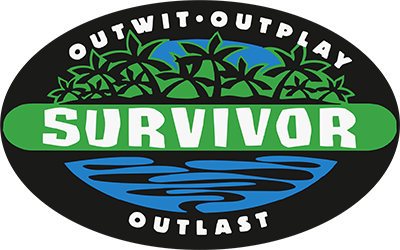

Practice
Spoiling Survivor: The Anatomy of a Knowledge Community
Discover how online communities combine their knowledge on a shared interest to make sense of the greater whole.
CHAPTERS
READ
Grassroots convergence
What is an important factor that holds together collective intelligence, besides knowledge?
Why can spoiling be seen as an adversarial process?
Which type of convergence can be used to describe the process of a knowledge community such as those of the Survivor fans?
The age of media convergence allows for increasingly communal modes of media reception. Whereas in the past people conversed about what they had seen on television with their families, friends or co-workers “around the water cooler”, these conversations are now held online in various virtual communities, enabling a wider range of individuals to be part of the discussion in real time. Studying the activities of online communities, from the point of view of consumers, can help us understand the social nature of these new kinds of media consumption, as well as the power in their collective abilities; namely combining members’ expertise and intelligence to create knowledge communities. One such online community, that proved to have had great influence in its negotiation with media producers, is the Survivor community of spoilers.
Survivor (2000) is a popular CBS reality-TV show with one of the largest audiences in broadcast television. The show is designed for the Internet age – with its content being discussed, debated and critiqued in virtual communities. Its hardcore fans are determined to figure out where the next season will be filmed, who will compete in it and make it to the final episodes, and who will win the million-dollar cash prize – and they are willing to go lengths to solve the mysteries. On the message board of their online community, the Survivor fans share what they know, and by combining their knowledge they manage to unravel some of the show’s secrets before they are officially released by the producers or broadcast on television. The community’s spoiling activities can be seen as adversarial, as fans are trying to get their hands on knowledge, which producers so eagerly try to protect.
This form of spoiling is a good example of collective intelligence. As no one individual knows everything, but all members know something, by combining knowledge the community can make sense of the greater whole. The unique nature of collective intelligence can be explained in contrast to Peter Walsh’s expert paradigm. The expert paradigm refers to a traditional body of knowledge, possessed by one individual who has credentials, is familiar with and follows a set of disciplinary rules to process information, thus creating a sense of an interior of people who know things, and an exterior of people who do not. Collective intelligence on the other hand refers to a much broader body of interdisciplinary knowledge, which cannot be possessed by one individual, and in fact thrives in the setting of a diverse community of contributors. Collective intelligence is held together not only by the shared knowledge, but rather the social process of acquiring this knowledge, which is participatory, dynamic and is built on social bonds.

Knowledge communities are central to the process of grassroots convergence, where participants choose their own points of contact with the media to prolong engagement with their preferred franchises. However beneficial this may be for the media industry, we must remember that consumers and produces do not always share the same interests. In chapter 2, assuming the point of view of the media industry, we will take a look at how media producers capitalize on the opportunities of convergence to promote their content and advertisers.

Find how participation among members of online communities is divided
Which term is used to describe knowledge communities in which some members provide information, and some just lurk?
Facts & Figures
Test your knowledge by answering these questions about Chapter 1.
Chapter 1
The social process of acquiring this knowledge, which is participatory and strengthens social bonds
Fans are trying to get their hands on information, which the producers are trying to protect.
Why can spoiling be considered a good example of collective intelligence?
Jenkins, H. (2008) Convergence Culture. Where Old and New Media Collide. U.S.A. New York: New York University Press.
Nielsen Norman Group (2006) The 90-9-1 Rule for Participation Inequality in Social Media and Online Communities. Consulted on 20.09.2014. Retrieved from; http://www.nngroup.com/articles/participation-inequality/
Walsh, P. (2003). That Withered Paradigm: The Web, the Expert and the Information Hegemony. In Jenkins, H. and Thorburn, D. (Ed.), Democracy and New Media. Cambridge, Mass.: MIT Press.
DISCLAIMER
CREATIVE TEAM
THE AUTHOR & THE BOOK
Fans share their knowledge to make sense of the greater whole
Expert paradigm
GLOSSARY
WATCH
LITERATURE